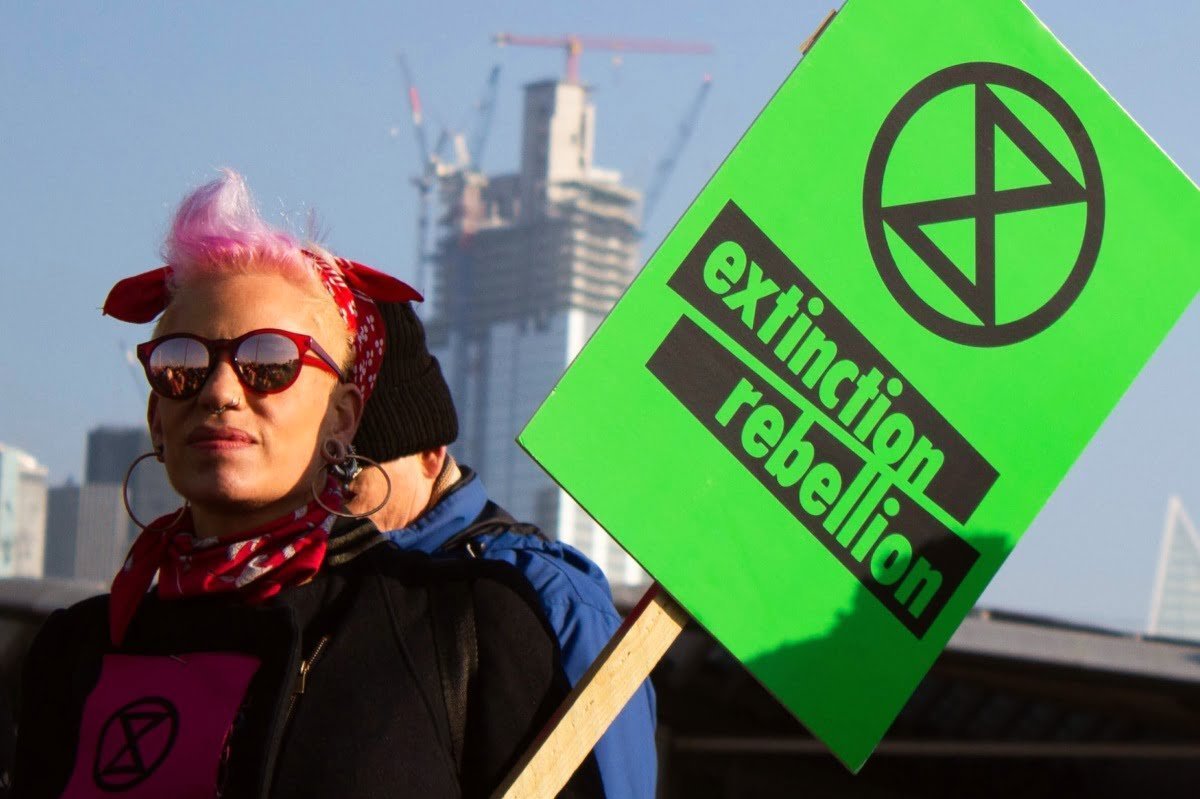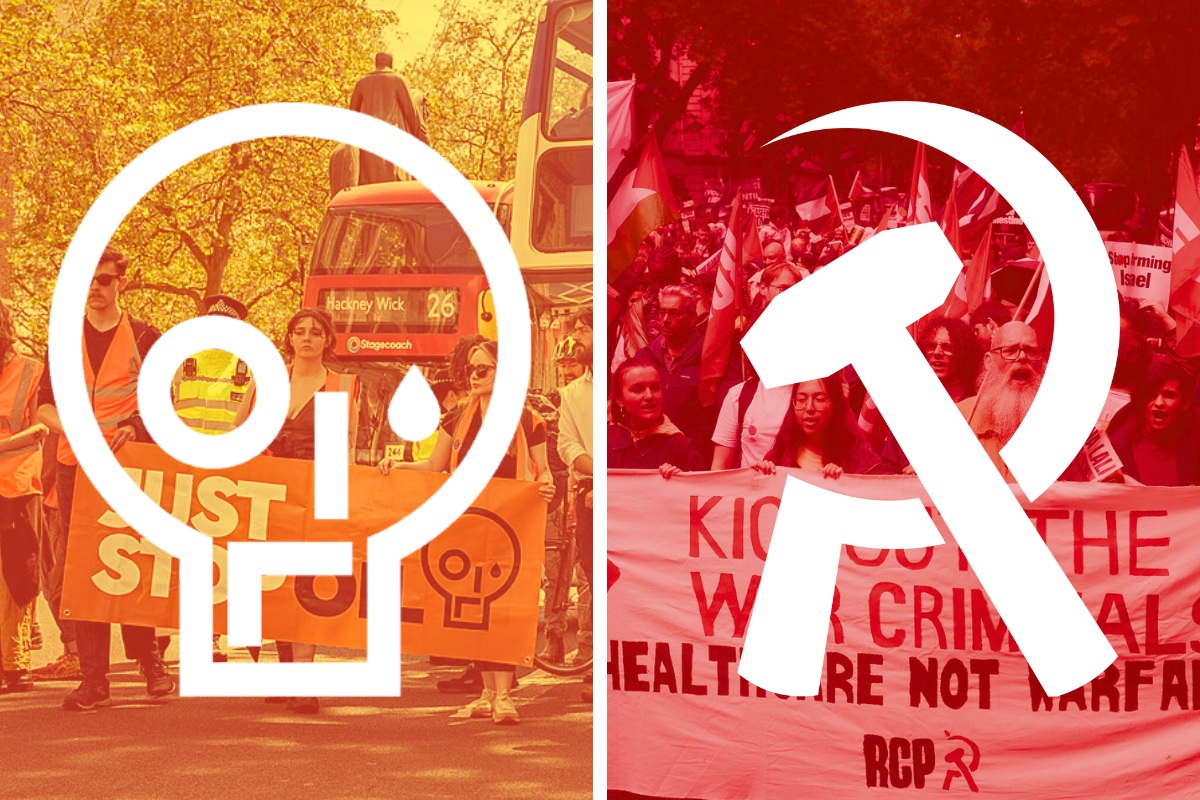The recent Extinction Rebellion protests have shown the passion that exists amongst activists to avert a climate catastrophe. But what is the best way forward from here for the environmental movement?
Last Thursday, on 25th April, Extinction Rebellion (XR) activists marked a ‘pause’ to protests with a ceremony in Hyde Park. During almost two weeks of direct action and demonstrations, the XR movement repeatedly hit the headlines, as thousands of environmental protestors occupied major London landmarks in an attempt to force the government to take action on the climate.
Over the ten day period of protests between 15-25th April, over 1100 environmental activists were arrested. Met Police Commissioner Cressida Dick said that she had “never known a single operation in which over 700 people have been arrested”.
The scale of the protests reflects a widespread public awareness of the severity of the situation. Failure to rapidly reduce emissions will lead to catastrophic climatic changes. We are already reaching the beginning of a devastating domino effect that will see a rapidly accelerating advance of ‘extreme weather events’, such as desertification, floods, and wildfires. There is now a genuine threat to the existence of human life on this planet.
Broad church
 In previous years, climate protests have largely been limited to smaller actions such as climate camps. But in recent months, the environmental movement has developed a mass character, particularly amongst young people.
In previous years, climate protests have largely been limited to smaller actions such as climate camps. But in recent months, the environmental movement has developed a mass character, particularly amongst young people.
The mass #YouthStrike4Climate movement, for example, has seen 1.5 million students across 125 countries walk out of school to demand radical and systemic change to stop global warming.
XR has become possibly the most high-profile strand of this burgeoning environmental movement, with its strategy of visible, non-violent, direct action. The aim of this ‘rebellion’ is to draw attention to the unprecedented ecological crisis facing our planet, and to pressure the government into agreeing its demands, which are:
- To “tell the truth” by declaring a climate and ecological emergency.
- To “act now” with means to “halt biodiversity loss and reduce greenhouse gas emissions to net zero by 2025”.
- To create a citizens’ assembly on climate change and ecological justice which would lead governmental action.
To achieve this, leading XR campaigners claim that they need 3.5% of the UK population – some two million people – to join their struggle. As a result, XR adopts a ‘broad church’ attitude, attempting to win support from across the political spectrum.
No doubt a significant majority of grassroots activists – especially the youth – are firmly on the left. Amongst the student climate strikers, in particular, many are calling for fundamental systemic change as the only way to solve the ecological crisis.
And yet the XR organisers have acted to depoliticise the movement at every turn, in their attempts to appeal to the widest possible base. For example, the online XR recruitment video opens with an explanation of why the climate rebellion even fits with conservative and liberal ideology.
This has also been reflected in the speeches made by celebrities courted by XR. For instance, the naturalist Chris Packham has called on Theresa May and Michael Gove to “come to the table and show us that we can begin to trust you again”.
Class question
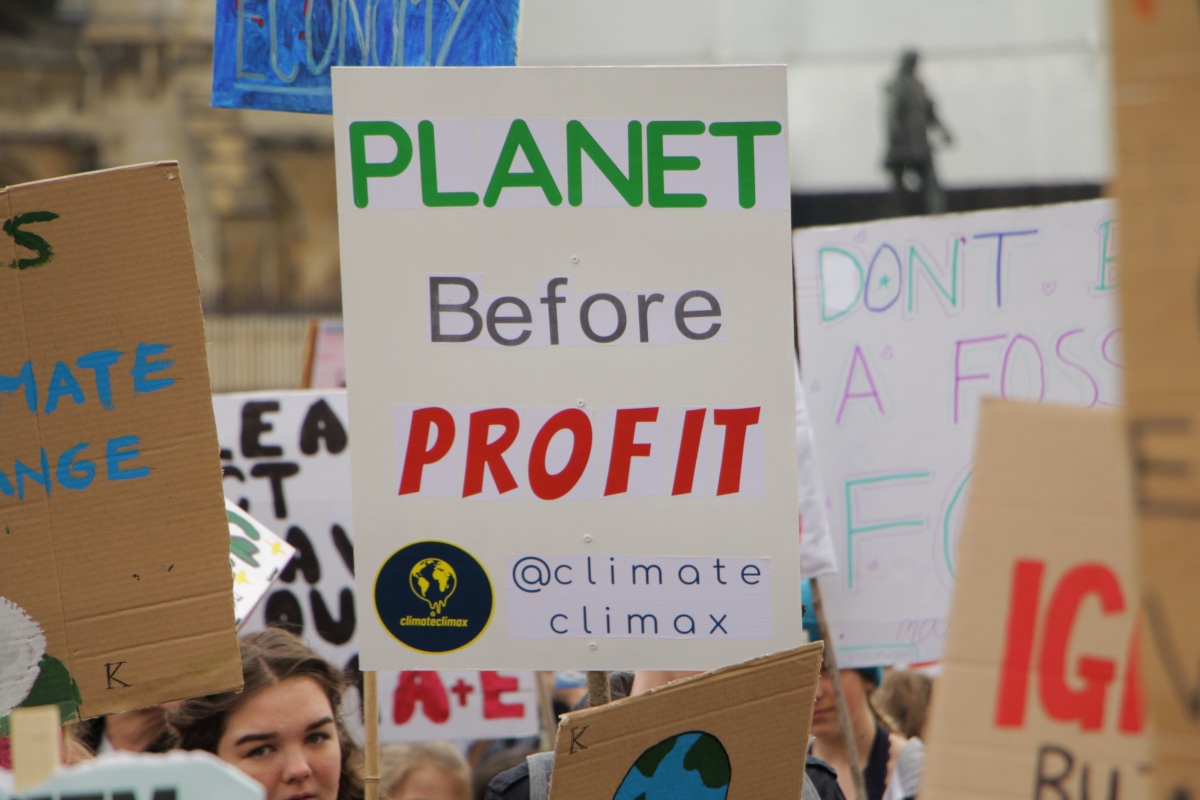 The problem is, climate change is political. It is a class question. It is the capitalists and their system that are responsible for destroying the planet. It is the rich elite who are responsible for the lion’s share of pollution and waste. Just 100 major monopolies have produced over 70% of greenhouse gas emissions in the past few decades.
The problem is, climate change is political. It is a class question. It is the capitalists and their system that are responsible for destroying the planet. It is the rich elite who are responsible for the lion’s share of pollution and waste. Just 100 major monopolies have produced over 70% of greenhouse gas emissions in the past few decades.
And only the organised working class has the power to overthrow capitalism and fundamentally transform society in order to solve the climate crisis. But this cannot be done if the movement are tied politically to the capitalists, with a watered down programme designed to appeal to big business Tory politicians.
The objective of the April XR protests – in the minds of the movement’s leadership, at least – was to gain the ear of the government. But negotiations with a Tory Prime Minister (if she even agrees to come to the table) are guaranteed to fail.
The Tory government, together with the whole state apparatus, represents the capitalist class. They are part of an establishment that defends the profit system. And it is this system that is ultimately responsible for destroying our planet. Keeping within the limits of this chaotic system, it is not possible to resolve the climate crisis.
Appealing to a government that represents the capitalist class is therefore futile. In fact, it is worse than futile; it is harmful, since it actively leads the movement down a dead end. These elite politicians defend the interests of big business, not the needs of society and the environment. We cannot place any of our hopes or trust in them.
XR’s programme tacitly acknowledge this by including the demand for “citizens’ assemblies”, randomly chosen by lot, to hold the government to account and advise it on climate change. But it is not clear why these assemblies would be any more accountable than elected politicians. And the reality is that no big business government is ever going to take advice from anyone other than big business.
Instead of the vague notion of citizens’ assemblies, what is needed is to fight for a socialist Labour government. This should be accountable to a mass movement of the working class, organised and democratically involved through workers’ control and management of industry. And rather than choosing people at random, we need elected representatives drawn from the working class – instantly recallable and only taking the average wage of the workers they represent.
Climate emergency
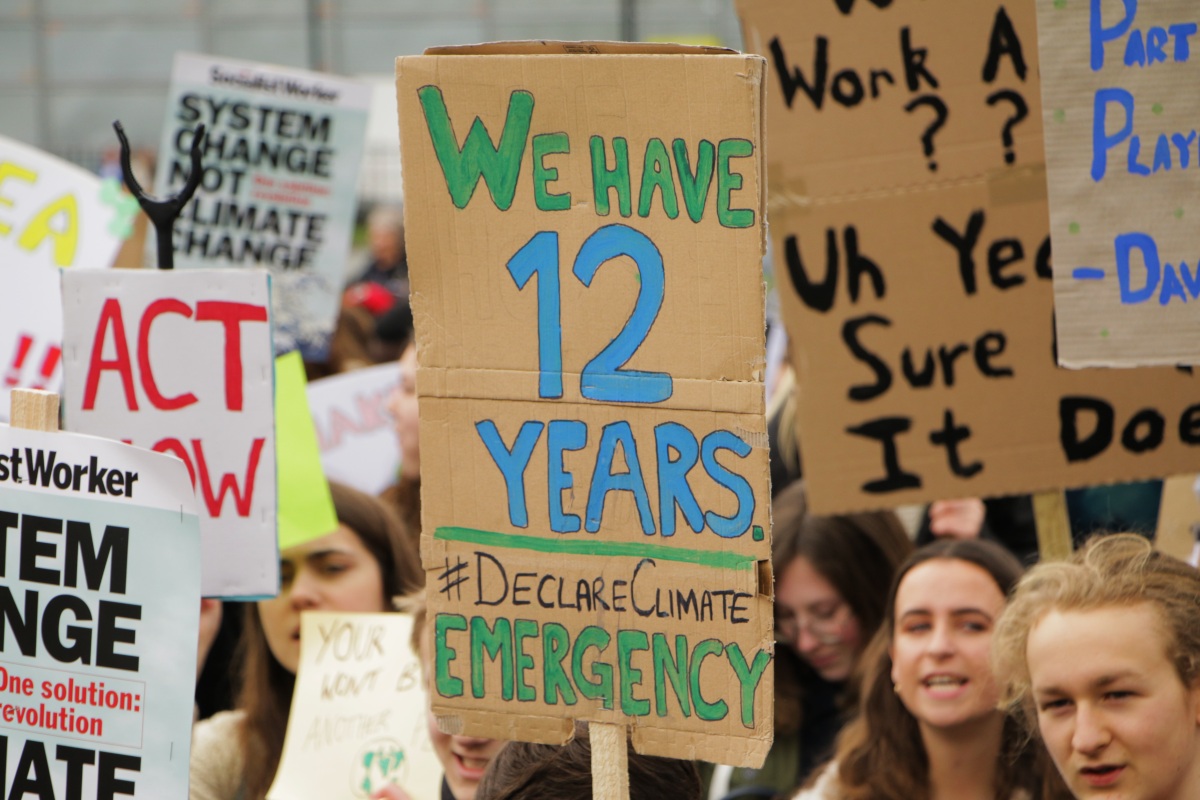 One of XR’s key demands is for the government to declare a ‘climate emergency’. The idea is that this will mark an end to ‘business as usual’, shifting the focus of society to solving urgent environmental issues.
One of XR’s key demands is for the government to declare a ‘climate emergency’. The idea is that this will mark an end to ‘business as usual’, shifting the focus of society to solving urgent environmental issues.
The problem is that the top priority for the capitalists and their political representatives will always be profit. Everything else – even the future survival of the human race – will always be subordinate to this raison d’être, so long as the capitalist system continues.
After decades of scientific consensus, big business and their Tory backers are perfectly aware of the depths of the climate crisis. As Michael Gove put it, responding to XR protests, “we’ve got the message”.
Yet, as with capitalism’s economic crisis, the ruling class are completely paralysed in the face of disaster, like a rabbit in the headlights. Even if the Tories did declare a climate emergency, how would they be able to act on it?
Capitalism is a system based on profit, competition, and a race to the bottom. Companies that aren’t profitable don’t survive. And corporations that don’t cut costs aren’t profitable. Trying to convince or pressure the capitalists to stop destroying the planet simply will not work as long as we are constrained as a society by the cold logic and laws of the market.
This is demonstrated by the total failure of international treaties on climate change. Every few years the global elite get together for yet another ‘last chance’ summit. And yet every time they agree on precisely nothing. The latest treaty, the toothless Paris Agreement, for example, allows each country to set their own, non-binding targets for reducing emissions. Anything more than this is simply not achievable under the current system.
Red and green
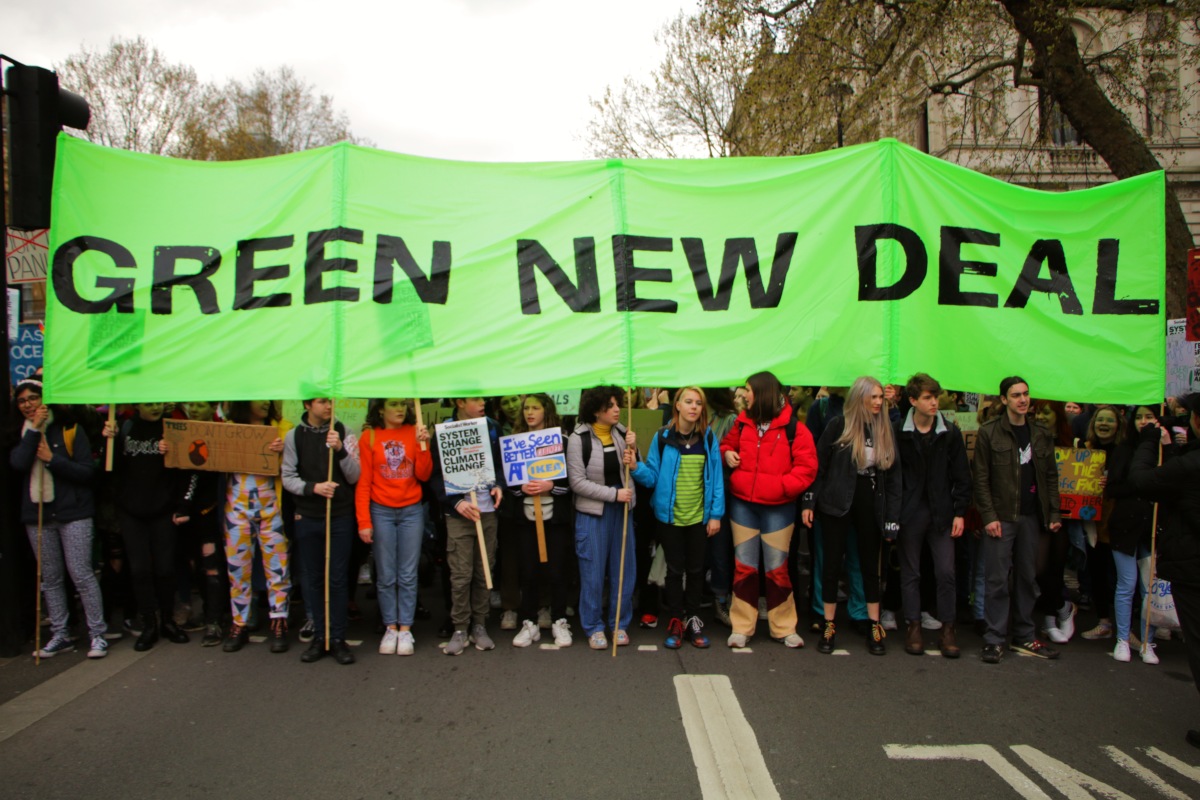 XR’s recent protests have put the movement and its demands firmly on the map. But the direct action phase of the demonstrations has already reached its limits. There is only so long that you can occupy junctions without advancing the movement further. So what is the way forward?
XR’s recent protests have put the movement and its demands firmly on the map. But the direct action phase of the demonstrations has already reached its limits. There is only so long that you can occupy junctions without advancing the movement further. So what is the way forward?
Many in the environmental movement are already raising the need for system change. Recent articles in the mainstream media (see here and here) have openly called for the overthrow of capitalism in order to avert ecological disaster. XR activists should boldly put this demand front and centre.
If the capitalist system was replaced with a socialist plan of production, modern green technology could be utilised throughout the economy to address the needs of people and the planet, not profit. Such an economic plan, under the control of the working class, would have decarbonisation of energy, industry, and transport at its centre.
The demands of the environmental movement can easily be dovetailed with labour movement demands for an end to austerity and for a decent life for all. Labour’s “Green New Deal” (GND) programme aims to do precisely this, explicitly raising environmental demands as a class question – that is, a question of who owns and controls our economy – with calls for nationalisation of key sectors such as transport and energy.
Energy, homes, and transport
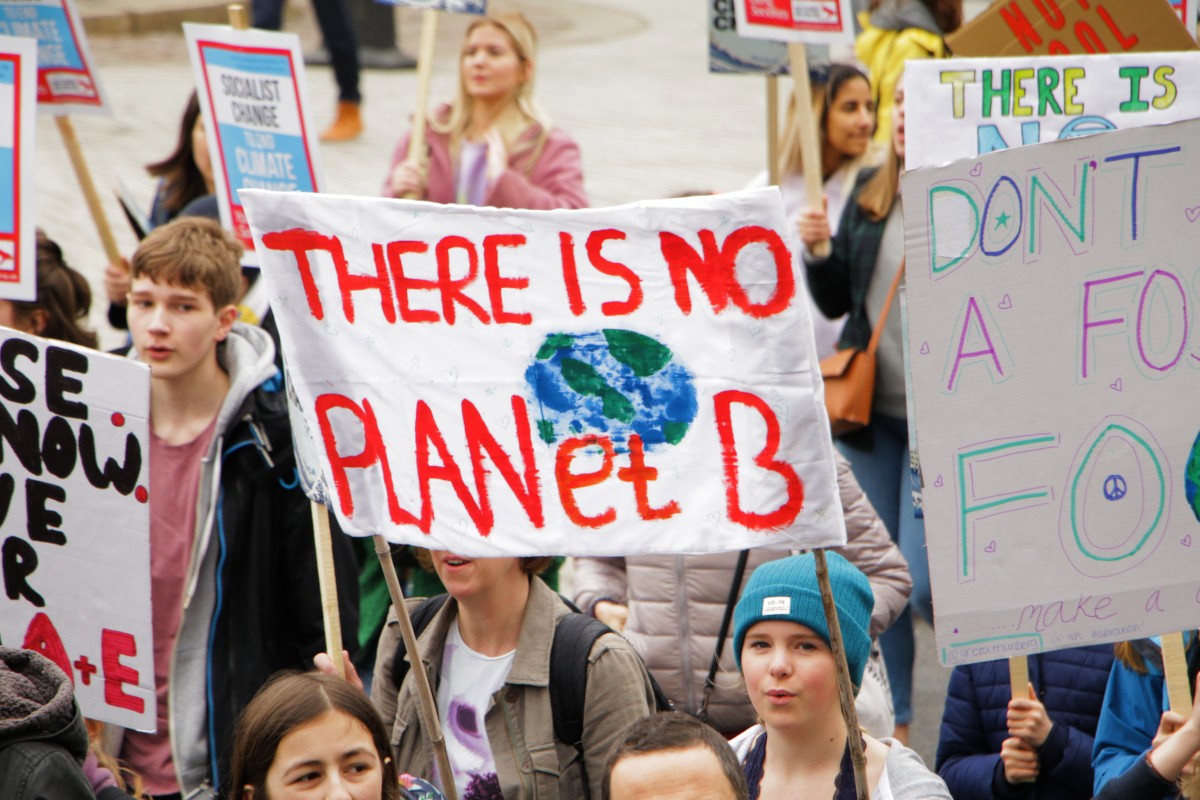 The potential is clear to see with only a few obvious examples.
The potential is clear to see with only a few obvious examples.
In terms of energy: over 2.3 million families live in fuel poverty; meanwhile, the major energy companies continue to raise their prices. The solution to this is to nationalise the Big Six energy companies and the grid, taking our energy supply out of the hands of the profiteers. Under public ownership, we could invest in renewable energy whilst cutting prices for consumers.
At the same time, we need urgent investment in affordable housing. Rather than allowing construction companies to cut corners (including environmental regulations), we should expropriate the big construction firms. In this way, we could undertake a mass public programme of insulating existing homes and building new, high-quality, energy-efficient social housing.
Elsewhere, our transport system is in chaos. Projects like Crossrail are in total disarray as a result of cost-cutting and outsourcing. In the last decade alone, more than 3,000 bus routes have been scrapped. Dire and costly public transport means millions of workers are forced to drive. This is ruinous for our environment, not to mention staggeringly inefficient. We should replace this chaos with a high-quality, wide-ranging, co-ordinated, integrated, and affordable public transport system.
This is hardly an exhaustive list of the ways in which the labour movement and environment movement can be linked. But it shows the potential and provides a clear way forward.
Capitalism is killing the planet
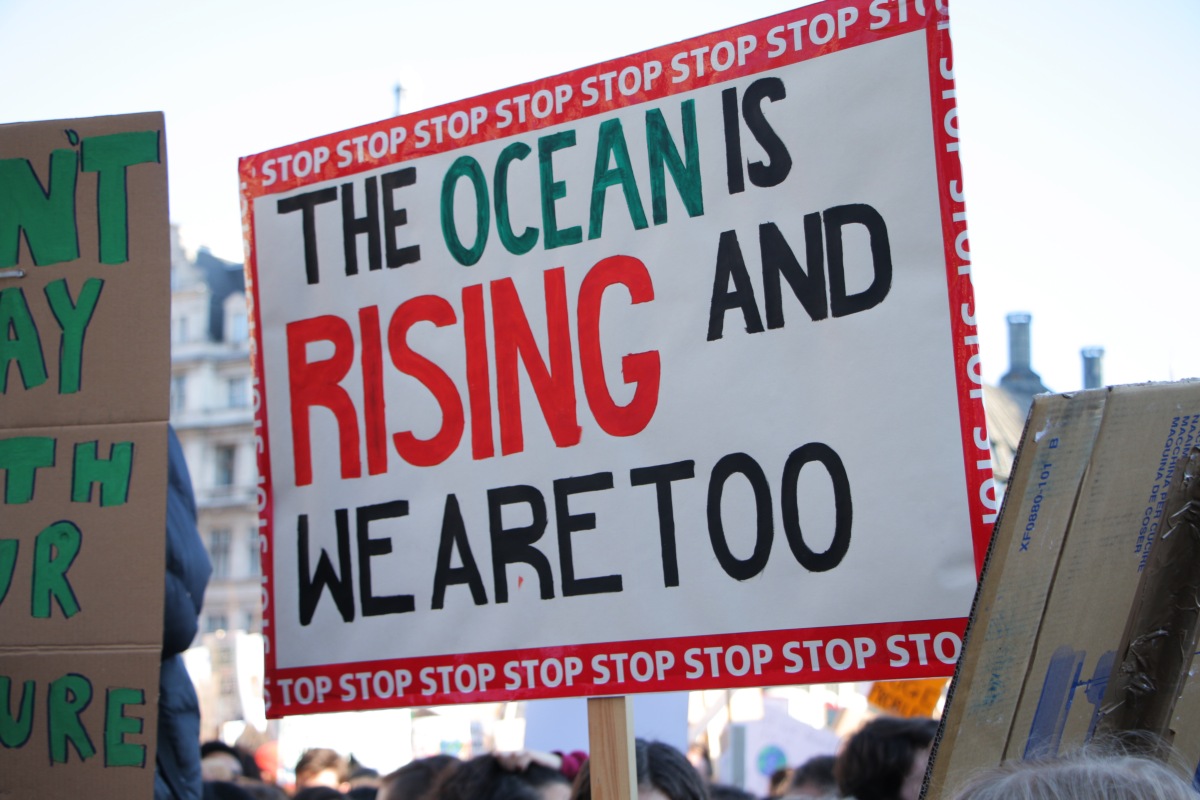 The Green New Deal is a good start. It involves nationalisation of some important sectors. But we need an overall plan of production that integrates energy, industry, and the banks, replacing the profit system with an economy based on needs.
The Green New Deal is a good start. It involves nationalisation of some important sectors. But we need an overall plan of production that integrates energy, industry, and the banks, replacing the profit system with an economy based on needs.
And the GND proposal does not answer the age-old question thrown at the left: how are you going to pay for this?
The money clearly exists, but it currently sits in the pockets of the very same big businesses and banks that are driving us off an ecological cliff edge. In UK banks alone, there is around £700bn lying idle, unable to find a profitable outlet because of capitalist crisis of overproduction.
By expropriating the banks, this money could quickly be invested in decarbonisation and green infrastructure. Instead of pressuring the banks to ‘divest’ from fossil fuels, we should be nationalising the banks and big energy producers. Only by taking over the banks and major monopolies can we put society’s wealth, resources, and technologies to use in solving the pressing environmental issues that face us.
As movements like XR and the #YouthStrike4Climate have shown, people are looking for answers. The health of our planet is a political question, so we need a political answer: a socialist Labour government armed with a economic and environmental programme based on a socialist plan of production.
The vast majority of workers and youth understand the urgent nature of the situation, but they feel powerless. No matter how much effort they put into reducing their individual carbon footprints, this is a drop in the ocean compared to the devastation wreaked on the climate by the capitalists.
The fact is that under capitalism, real power lies in the banks and boardrooms. In order to control and plan the economy in the interests of the many, these banks and monopolies must be expropriated and made to serve the needs of society, and not the profits of the parasites who are killing the earth.

